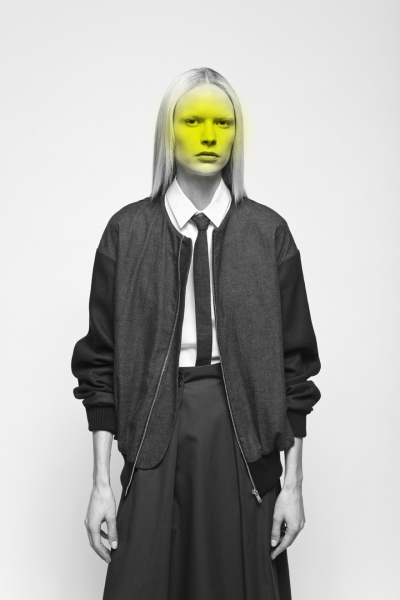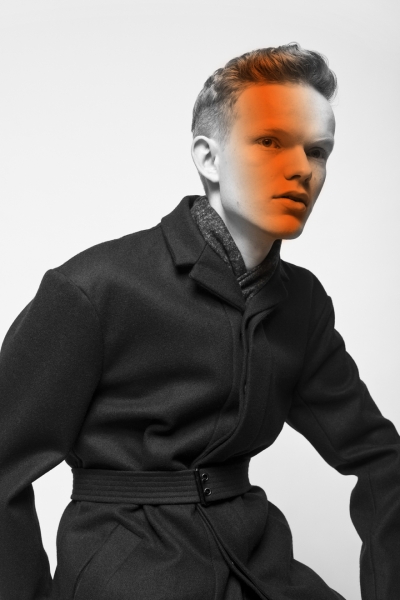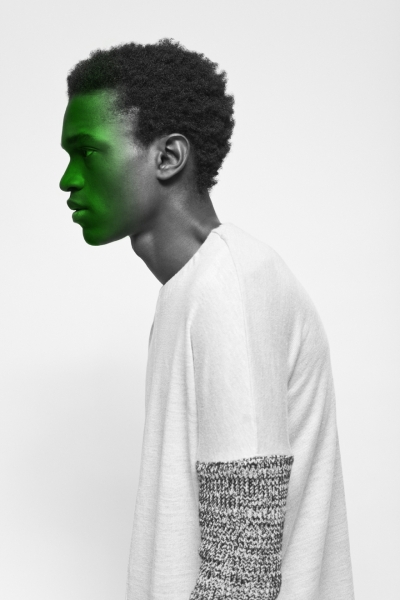
Six months ago, graphic designer Mari Stolan was on her way to meet her business partner, clothing designer Oda Midtlyng Klempe. The pair had founded Norwegian clothing label Solv just three years prior, finding much success providing timeless collections and bucking trend-based fashion cycles. Yet despite their growing popularity among consumers and shareholders alike, Mari was ready to step back from it all and leave the business. “We had become the perfect example of a sustainable business losing its mission in its ambitions to grow,” she writes.
She didn’t quit. Instead, Mari and Oda created something profound and authentic. Instead, they created a slow fashion movement.
The Solv clothing label was born to promote the long-last values of consuming – loving, caring and passing along what you own to those you love. “But as the business grew, it became more and more difficult to hold on to our core values,” Mari writes. “Visiting our retailers and seeing our beautiful, timeless garments hanging on last-minute sales racks made us feel as if it were shampoo and toiletries we were selling.”

After quickly realizing that Oda, too, was unhappy with the current model, the pair started brainstorming an alternative. “And just like that, after three years of strategic planning, sales meetings and investor hunts, we were back to just being two people wanting to make a difference,” Mari writes.
Together, they crafted a new business model entirely – a plan that would more effectively support their own core values. The result? They cut the middle link – the retailers – and cancelled all external contracts. For each collection, Solv would now allow customers to pre-order items online before they were produced, avoiding any excess materials and unnecessary mark-up. There would be no clearance prices, flash sales, wasted garments. Instead, there would be creation, quality and – of course – a healthy dose of patience.

And the duo isn’t alone. Recently-launched online store Honest By gathers designers who are dedicated to 100% transparency in their production process, listing sources and materials for every element available – from safety pins to care labels – even the thread used to sew each pattern. Each collection is accompanied by inspired designer interviews and authentic thoughts.
“Something really happens when money – the worry of not reaching another sales goal – is taken out of the equation,” Mari writes. “When purpose is placed above profit. You start to think big. Possibilities that weren’t valued before now get the space to grow. And all of a sudden your dying idea blossoms. The re-puzzling had started, and a new business model was born.”
Solv’s new model has one key shortcoming, of course: time. Each garment takes roughly six months to produce, meaning that winter coat you’re eyeing might not arrive until next summer. The upside to this, however, seems far more beneficial: the ability to impulse purchase has vanished. Indeed, all good things are worth waiting for.

Solv sees another benefit to their six-month lead time. “By including the customer early in the process, we are able to share the story of each garment while it is being made,” Mari writes. “During the waiting period, the customer will discover how the fabric is carefully hand-woven on an island in Scotland – and how, one month later, it is sent to Portugal to our seamstress.”
Although Mari and Oda have only just begun their new venture, they’ve already noticed their loyal customers are hungry for change. “A movement is growing largely as we speak,” Mari writes. “It is only time that fashion takes a larger step away from its trend-based ways and considers slow as the new permanent black.”

“Everything done slowly opens up a new way of seeing, thinking and being,” Mari writes. “The process becomes more important than the goal. Which is what life should really be about, yes?”
(Yes.)
Image Credits: Honest By
p.s. The best fashion collection you’ll never see – and slow(growing) fashion.


It’s quite a timely post considering the 400 deaths this past week in the garment factory building collapse in Bangladesh. The manufacturer had passed inspection but the building itself had not been built to code.
They manufactured cheap clothing for North American discount retailers like Joe Fresh.
We can only wear one outfit at a time and most of us have closets full of clothes. How many do we really need?
What a delight it would be to have fewer clothes that we indeed appreciate and enjoy.
I love the overall theme of slowness – enjoying a conversation, deep reading an article or book, a long meal, a slow sip of coffee. Even the time to take a nap.
Oh gracious – I hadn’t read about the factory collapse. So terrifying!
thanks for this post – so happy to learn about Solv and Honest By. i’ve started to make a concentrated effort to reduce my wardrobe and focus on shopping consciously and ethically and am always excited to find new resources!
I’m doing the same, Rita! Happy to hear I’m not alone. :)
This is amazing. I love that you get to know the story of your garment and all the people and materials that it takes to make one piece of clothing. I try as much as possible to buy clothes from the thrift store or revamp things and so it is always great to hear about companies that are providing beautiful fashion with a conscience.
I couldn’t agree more, Kandy!
Love this article! So inspiring. Missing photos from Solv, is it a womenswear label? Do you have a link to a website where the collection is sold? Rita
Hi Rita:
Yep – womenswear! You can find the collection link in the third paragraph (or right here: http://www.solv-studioet.com/ ). There is some beautiful winter wear available at the moment! :)
It would be cool it they did a payment plan too. If all of clothing shopping were like this, we would just have to plan our purchasing better. Like I would be thinking about my winter wardrobe now. I would be much more mindful of what I own and what I need. I really like this whole idea.
I love that idea!
I love this so much, I have no words. :)
Thank you Erin.
Mx
Thanks, Melissa. :)
A really good alternative for the non-fashion OR consumption and superficial-fashion choice. Thanks for your writing again (and again sorry for my bad English)
Don’t apologize, Musa – I appreciate your thought! :)
I’m absolutely in LOVE with this idea. Thanks for sharing.
Anytime. ;)
Anyone interested in learning how to dress with less might want to check out Project 333. Completely transformed how I dress–which means i can be in the market for clothing like this. Thanks for sharing.
Oh I love this concept, Rita – thanks for sharing!
This is really wonderful…the next step would be to make the clothing in more sizes to be more inclusive (and actually use real women to fit the clothes rather than just up the pattern size…but that’s another story)!
Ha – I’m with you there! Another story entirely. :)
Thank you for this great post. I’m really moved by the concept.
Thanks, Agata. :)
Hi erin, the concept is very nice. It touches my heart in a unique way, thumbs up!
Thanks, Cindy :)
Thanks for posting about this topic! I didn’t know about Solv and their story and it is great to learn about other initiatives that develop a more sustainable way of doing business. It’s exciting how this slow fashion movement is happening right now. As a women’s wear designer I totally understand their choices. This year I started working with sustainable fabrics, share a big part of the process online and started using a pre order/crowd funding system where you get a better deal but have to wait a couple of months before they get their items. I am expanding that pre order concept to my web shop in a slightly different form when my new collection is launched this summer. Part of it is that want to reduce over production, which feels like a waste of materials and energy since me and my small team do the production ourselves.
I think a big part of the problem is that people are disconnected from the production of the products they use, wear and eat. We need more labels and brands to be open about it like Solv and Honesty By.
I completely agree! It’s easy to pretend like the back story doesn’t exist unless we’re faced with it when purchasing. And I’m so excited for your collection to launch this summer – your work is beautiful!
Wow a heart felt post! Thanks for sharing this. :)